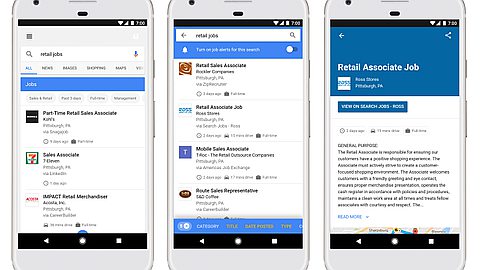Google's Excellent Plan To Bring Wireless Internet To Developing Countries

This is an absolutely excellent plan and one that we should be applauding. But not necessarily for what it will do to Google itself: rather, for what it will do to those developing countries:
Google Inc. is deep into a multipronged effort to build and help run wireless networks in emerging markets as part of a plan to connect a billion or more new people to the Internet.
These wireless networks would serve areas such as sub-Saharan Africa and Southeast Asia to dwellers outside of major cities where wired Internet connections aren’t available, said people familiar with the strategy.
The networks also could be used to improve Internet speeds in urban centers, these people said.
They’re looking at all sorts of different technologies to achieve this: satellites through blimps to microcells that broadcast a 3G signal perhaps half a mile. There will be a certain amount of mix and match depending upon the precise circumstances of the area to be covered.
The thing I want to concentrate on though is the economic effect upon the countries where such networks are installed. We know from our economic history that the roll out of the telephone network aided in the development of the currently advanced countries. We’ve also had more recent studies looking at the effect of mobile phone networks on countries that don’t have a landline network. The effects are remarkably large. An extra 10% of the population with a mobile leads to an extra 0.5% growth in GDP year by year. That’s a seriously large effect from the addition of just one technology: presumably because being able to communicate is what makes nearly all other technological adaptations adoptable.
We’ve also been seeing the beginnings of reports from various of the telecoms consultancies telling us how the expansion of broadband, then mobile broadband (or smartphones, to taste) has been leading to further growth in the societies that have adopted them. Given that we can see that communications networks have had this effect before we shouldn’t be surprised that the latest one is again having such an effect. Although it would be fair to say that the studies about broadband are still pretty sketchy: we’ve not got a great deal of accurate evidence as yet.
So, we would expect that the addition of mobile broadband in a society that doesn’t have landline broadband to be a useful thing. Leaping over one technology in order to get that comms network up and running. Usually when I mention this I get comments that I just don’t understand how limited mobile bandwidth is compared to fibre: but that doesn’t really apply in this case.
Think it through for a moment: to roll out Google Fiber to the entire US is said to cost well north of $100 billion. OK, now let us think about rolling the same technology out to a developing economy of 30 million people (10% of US population). It’s not out of line to suggest that such would cost perhaps 10% of the US cost: $14 billion or so. But no developing country could possibly afford to pay that much. Albania, Papua New Guinea, Cambodia, that sort of cost is more than their entire production each year, more than everyone in the place put together produces. They simply cannot afford to make that leap to fibre broadband for all: whatever effect it might have on the future growth of the economy.
Thus the very much cheaper (even if with less capacity) roll out of mobile broadband makes great economic sense. Thus, as I say at the top, this plan is something we should cheer.
There’s also a little sidepoint that rather amuses me. It’s often said that Henry Ford paid his workers $5 a day so they could be rich enough to buy his cars. This story is, I’m afraid, complete nonsense. But it could end up being true that by developing low cost mobile broadband access, then deploying it, Google could make hundreds of millions of those currently destitute peasants rich enough to contribute to Google’s sales and profits. I know we’re not supposed to celebrate greed as being good these days but my own personal view is that Google can make absolutely as much money as it wants if the byproduct is those hundreds of millions moving up out of absolute poverty.





